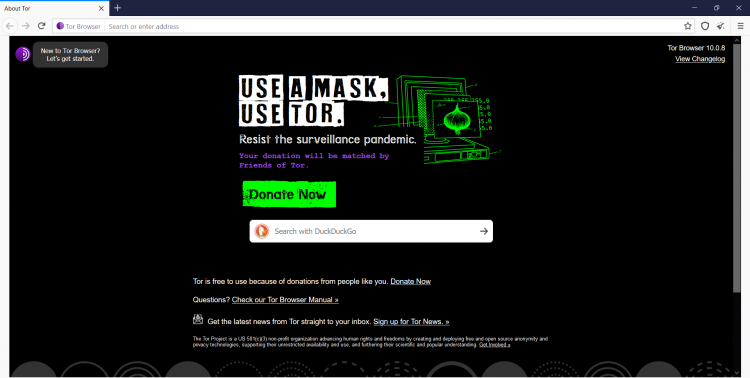Deep Web
Contents
Definition
The deep web is a part of the World Wide Web, the contents of which are not indexed by search engines. The deep web is also commonly known as the invisible web, the hidden web, and the undernet.
The internet is made up of different types of content, some of which can be accessed by search engine crawlers and some of which can not. This latter type of content is blocked from being indexed by search engines. In the case of the deep web, this is achieved by using cyber security - such as password protection software, encryption, or dynamic pages.
The deep web encompasses any content that exists on the deep web cannot be accessed by a search engine. Apart from that, the content that you access on the deep web is very similar to the type of content that you would access on the surface web.
The surface web, which you are most familiar with, is the content that you can find by searching on a search engine. Although the deep web is commonly perceived as dangerous, due to its affiliation with the dark web, it is not a threatening or malevolent area of the web. In addition, passwords and user identification are required to be able to visit these sites (thereby ensuring privacy), rather than the Tor browser which sites on the dark web require.
What type of information is stored on the deep web?
The information that the deep web contains is simply content which cannot be accessed via a search engine. The information usually requires this layer of protection because it contains private or personal details.
The information that is stored in this area of the web typically requires authentication and passwords to access. These sites are stored on the deep web so that they can only be accessed by the owner. In doing so, the owner’s privacy is protected.
In fact, the deep web accounts for over 96% of all content that exists online. The vast majority of this online content is entirely benign.
The majority of internet users will have accessed the deep web, and this is commonly done on a day-to-day basis, without even knowing that it is the deep web that they are using. The deep web is used to access a wide variety of different web pages and online information in a way that retains its privacy.
For example, the sites on the deep web can be used to access information such as:
- Online banking accounts
- Email accounts
- Social media accounts
- Medical records
- Sites containing the private databases of companies
- Content from scientific databases
- Information within academic databases
- Different types of legal documents
- A company’s gated pages
How does the deep web work and how can it be accessed?
The information that is stored on the deep web is designed to be kept securely, so it can only be accessed by the owner or an authorized person. An example of how deep web content is protected is the requirement that an accessor enters the correct login details.
Search engines operate by creating a data index. Then, by searching for keywords, you can use a hyperlink to access a domain. This index does not have access to data that is stored within the deep web. The typical process of locating a key term on this data index can not be achieved with information stored on these web pages. This is because search engine crawlers are blocked from accessing the content on the deep web, which is why this content is not found in search engine results pages.
This means that users cannot access the deep web through a search engine, as can be done to access content on the surface web. Instead, the information is stored online, in a way which ensures that it cannot be found by anyone who does not own the data or content. Users can access pages on the deep web via a direct URL or IP address, but they will need to pass through further security measures before they can access the content.
Some independent researchers and commercial search engines have been attempting to identify alternative ways to crawl the deep web. One such identified method involves accessing the deep web content indirectly by using hidden web crawlers.
What is the difference between the deep web and the dark web?
The deep web is commonly mistaken to be the same thing as the dark web. The two terms are frequently used interchangeably, however, they both operate in different ways and by users with different intentions.
The dark web is an area of the internet which is heavily associated with illegal activity and while sites on the deep web are used for common purposes by the majority of the population on a day to day basis, the dark web is often used to commit crimes. This includes the purchasing of illegal items without law enforcement having the ability to track the buyer.
Whereas the deep web operates by protecting web pages from access by search engines and unauthorized users, the dark web uses encryption software to render the identity of the searcher anonymous. A user can then access these websites without being traceable. The dark web requires the use of an anonymizing browser, such as Tor, to be able to view its sites. The sites that exist on the deep web, however, differ in that they do not require the use of Tor.

The starting page of the Tor Browser
Although the media tends to focus on the criminal activity that takes place through sites on the dark web, the deep web is not designed for uses of this nature. In fact, it is a resource that is essential for ensuring the security of our personal data and protecting our financial information.
Related links
- https://us.norton.com/internetsecurity-how-to-how-can-i-access-the-deep-web.html
- https://blog.hubspot.com/marketing/what-is-the-deep-web
Similar articles
| About the author |
 |